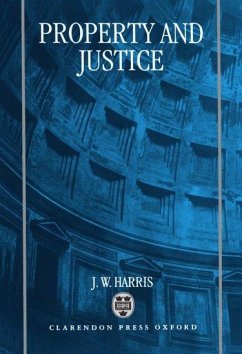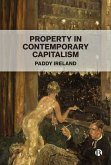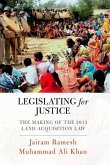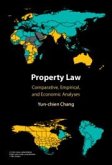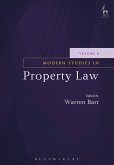Bridging the gulf between juristic writing on property and speculations about it appearing in the tradition of western political philosophy, Jim Harris has built from entirely new foundations an analytical framework for understanding the nature of property and its connection with justice. Dr Harris' achievement is a monumental one marrying the subtlety of contemporary political philosophy with the fine detail of technical legislation and difficult litigation in English property law. The result greatly improves our understanding of the philosophical dimension of property and at the same time allows us to stand back from the detail and see the patterns which emerge.
When philosophers put forward claims for or against 'property', it is often unclear whether they are talking about the same thing that lawyers mean by 'property'. Likewise, when lawyers appeal to 'justice' in interpreting or criticizing legal rules, we do not know whether they have in mind something that philosophers would recognize as 'justice'. Bridging the gulf between juristic writing on property and speculations about it appearing in the tradition of western political philosophy, Professor Harris has built from entirely new foundations an analytical framework for understanding the nature of property and its connection with justice. Property and Justice ranges over natural property rights; property as a prerequisite of freedom; incentives and markets; demands for equality of resources; property as domination; property and basic needs; and the question of whether property should be extended to information and to human bodily parts. It maintains that property institutions deal both with the use of things and the allocation of wealth, and that everyone has a 'right' that society should provide such an institution.
Hinweis: Dieser Artikel kann nur an eine deutsche Lieferadresse ausgeliefert werden.
When philosophers put forward claims for or against 'property', it is often unclear whether they are talking about the same thing that lawyers mean by 'property'. Likewise, when lawyers appeal to 'justice' in interpreting or criticizing legal rules, we do not know whether they have in mind something that philosophers would recognize as 'justice'. Bridging the gulf between juristic writing on property and speculations about it appearing in the tradition of western political philosophy, Professor Harris has built from entirely new foundations an analytical framework for understanding the nature of property and its connection with justice. Property and Justice ranges over natural property rights; property as a prerequisite of freedom; incentives and markets; demands for equality of resources; property as domination; property and basic needs; and the question of whether property should be extended to information and to human bodily parts. It maintains that property institutions deal both with the use of things and the allocation of wealth, and that everyone has a 'right' that society should provide such an institution.
Hinweis: Dieser Artikel kann nur an eine deutsche Lieferadresse ausgeliefert werden.

